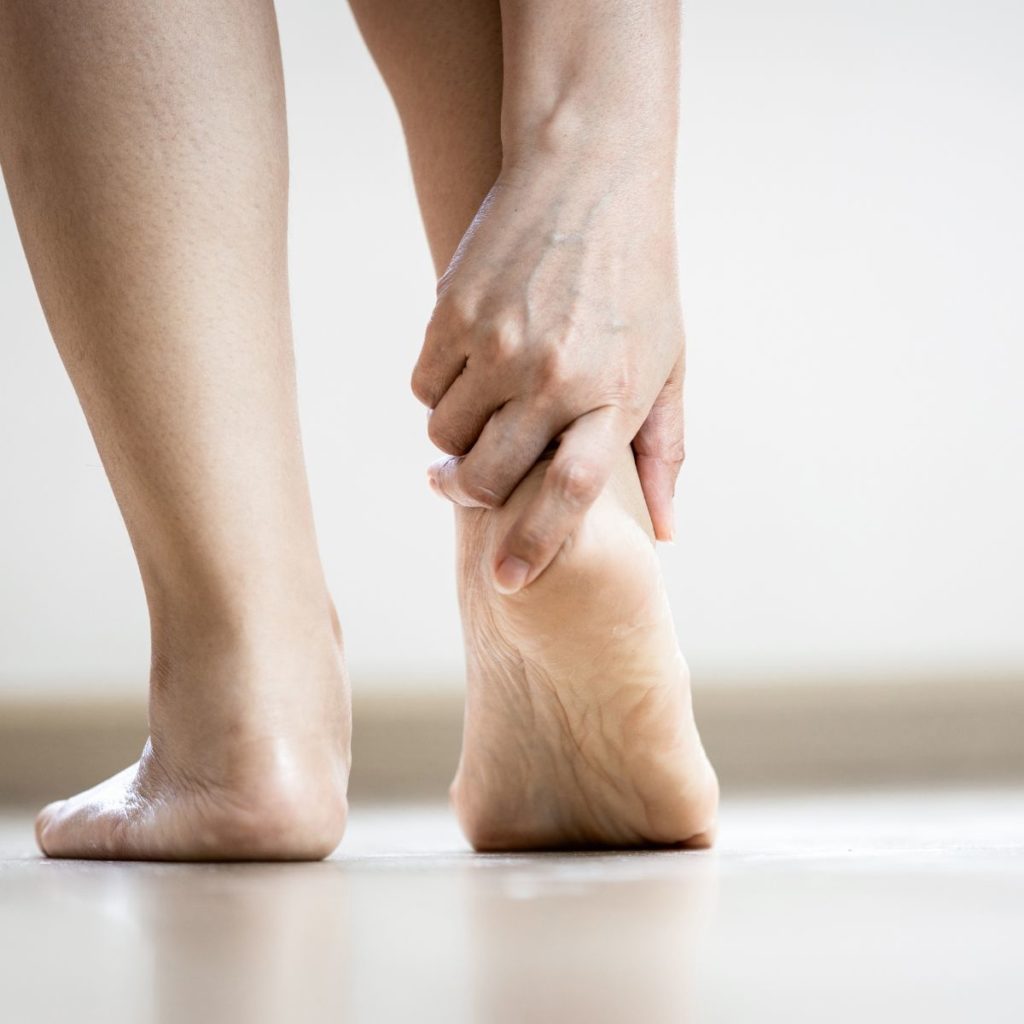Plantar fasciitis is an inflammation to the thick band of tissue that runs along the bottom of the foot. This condition can occur due to overuse, overstretching through the foot or other underlying medical issues. It often causes pain that is most intense in the morning, after prolonged periods of standing or sitting, or following exercise.
Physiology of Plantar Fasciitis
The plantar fascia acts like a shock-absorber that supports the arch of the foot. When excessive tension or stress is applied, small tears can develop in the fascia. Which overtime can lead to irritation and inflammation.
Symptoms of Plantar Fasciitis
- Pain under the heel (dull or sharp)
- Aches or burning sensations in the foot sole
- Mild heel swelling
- Pain that is worse in the morning, after prolonged standing or sitting, or after intense activity
Common Causes
- Participation in sports that place stress on the heel (running, dancing etc)
- Flat feet/high arches
- >40 years old
- Pregnancy
- Long periods on your feet
- Wearing shoes with inadequate arch support
Treatment Options
- Frozen Bottle Massage: Rolling a frozen bottle under the foot to reduce inflammation and relieve pain. You can also try freezing a lemon as the shape can be easier for under the foot
- Foot scrunch with Towel: Place a towel underneath the foot, scrunch through the toes to gather the towel under your foot
- Shockwave Therapy: A non-invasive treatment that uses acoustic waves to promote healing and reduce pain in the plantar fascia.
Diagnosis
To diagnose plantar fasciitis we utilize:
Medical History: Detailed history of symptoms, onset, duration, and factors that aggravate /relieve pain.
Physical Examination: Assessment of the foot for tenderness, swelling, and range of motion.
Specific tests may include:
- Heel Pain Test: Applying pressure to the heel and assessing pain response.
- Windlass Test: Dorsiflexing the toes and assessing pain in the plantar fascia.
- Imaging Studies (if needed): X-rays to rule out other conditions like bone spurs or fractures,
- and sometimes an MRI or ultrasound to evaluate the extent of tissue damage.
If heel pain is bothering you, this may be the cause. Call now to book an appointment (03) 9397 8877 or you can do so online here.





